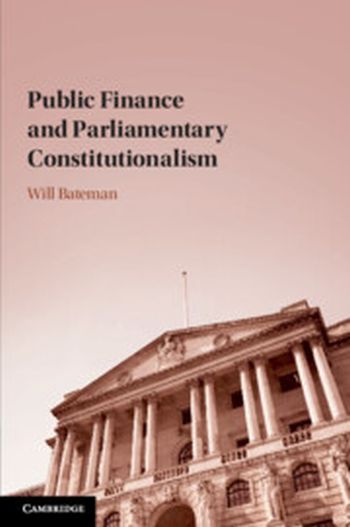
Public Finance and Parliamentary Constitutionalism analyses constitutionalism and public finance (tax, expenditure, audit, sovereign borrowing and monetary finance) in Anglophone parliamentary systems of government. The book surveys the history of public finance law in the UK, its export throughout the British Empire, and its entrenchment in Commonwealth constitutions. It explains how modern constitutionalism was shaped by the financial impact of warfare, welfare-state programs and the growth of central banking. It then provides a case study analysis of the impact of economic conditions on governments' financial behaviour, focusing on the UK's and Australia's responses to the financial crisis, and the judiciary's position vis-à-vis the state's financial powers. Throughout, it questions orthodox accounts of financial constitutionalism (particularly the views of A. V. Dicey) and the democratic legitimacy of public finance. Currently ignored aspects of government behaviour are analysed in-depth, particularly the constitutional role of central banks and sovereign debt markets.